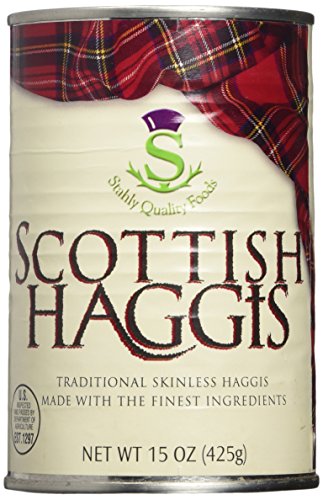Burns Night celebrates one of Scotland’s greatest poets- Robert Burns (1759-1796) - by toasting to haggis, eating and drinking a lot, and celebrating the company of good friends and shared tradition.
Burns' best known works include "Tam O’Shanter" and the lyrics to "Auld Lang Syne."
Widely regarded as the national poet of Scotland, he is the best known poet writing in the Scots language. A pioneer of the Romantic movement, he became a source of inspiration to founders of both liberalism and socialism.
Burns Supper
A Burns supper is a celebration of the life and poetry of Robert Burns held on the night of his birth date, January 25.
Burns Suppers follow strict rituals, beginning with the saying of the Selkirk Grace.
Some hae meat and canna eat,
And some wad eat that want it;
But we hae meat, and we can eat,
And sae let the Lord be thankit.
After that, the main event comes emerges from the kitchen. Everyone stands as haggis is brought in on a large dish by the cook to the accompaniment of a piper playing bagpipes.
Once the haggis is on the table, the host stands and addresses it with a full-length poem called "Address to a Haggis," written by Robert Burns, of course. It begins...
Fair fa' your honest, sonsie face,
Great chieftain o' the puddin'-race!
Aboon them a' ye tak yer place,
Painch, tripe, or thairm:
Weel are ye wordy o' a grace
As lang's my airm.
After the entire poem is read, the haggis is cut open, a glass of Scotch whisky is raised in its honor, and guests line up to serve themselves a spoonful of the savory meal. It’s usually served with "tatties and neeps," otherwise recognized as mashed potatoes and mashed turnips.
Other traditional accompaniments to haggis include cranachan (a raspberry trifle soaked in whisky), oatcakes, and cheese. All of it is washed down with more and more Scotch whisky.
After the meal, more toasts are given, more poetry is read, and more whisky is consumed. At the end of the night the guests invariably sing "Auld Lang Syne."
Haggis
Haggis is made from the heart, liver, and lungs of a sheep, ground up and mixed with onion, oatmeal, suet, stock, and spices, stuffed into the sheep’s stomach (or a sausage casing), then simmered in water for three hours.


